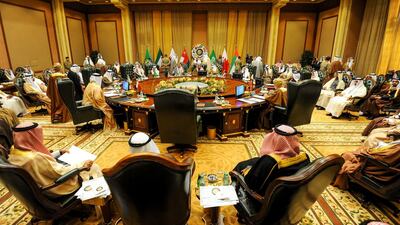The fight between the Arab quartet and Qatar took a new twist on Friday as three Middle Eastern countries asked the UN's top court to resolve a dispute with Doha over sovereign airspace.
Bahrain, Egypt and the United Arab Emirates on Thursday requested the International Court of Justice (ICJ) to quash a decision in Qatar's favour, handed down by the UN's global civil aviation body.
The International Civil Aviation Organisation (ICAO) last week ruled it had the jurisdiction to determine a dispute brought by Qatar, accusing its neighbours of violating an agreement that regulates the free passage of passenger planes through foreign airspace.
The three countries now want the Hague-based court to nullify the ruling by ICAO, saying its decision was "manifestly flawed and in violation of fundamental principles of due process and the right to be heard."
"The ICAO council is not competent to adjudicate", the countries said in papers filed before the ICJ.
They sought a declaration that the ICAO's decision is "null and void and without effect."
_______________
Read more:
UAE dismisses claim it passed laws over expulsion of Qataris
Arab Quartet files Qatar airspace dispute to UN's International Court of Justice
_______________
Thursday's filing is the latest salvo in the increasingly rancorous battle between Doha and its Gulf neighbours which erupted a year ago.
Then Saudi Arabia, Bahrain, the UAE and other allies severed ties with Qatar, accusing it of backing terrorism and Iran, and imposed wide-ranging punitive measures which included banning Qatari planes from their airspace.
In other measures, Saudi Arabia's land border with Qatar was closed and Gulf states ordered Qataris to leave within 14 days as well as calling home their own citizens.
Last month Doha claimed at the ICJ that the UAE has passed laws or orders relating to the expulsion of Qataris from the Emirates.
The UAE has refuted the claims and said that the ICJ has no authority to hear Qatar’s case.
The ICJ – the UN's highest legal body – was set up in 1946 to rule in disputes against states, but it can also give advisory opinions on legal questions referred to it by other UN organs and specialised agencies.
All diplomatic efforts have proved fruitless in resolving the crisis.

